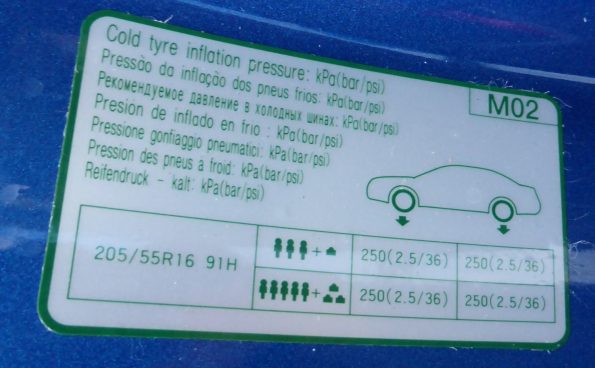Driving can be a tedious experience, whether you are stuck in traffic on your way to or from work or you spend hours every day on the roads as a truck driver, taxi driver or courier, driving can be a tedious necessity.
One thing that can make driving even more frustrating than it needs to be is excessive road noise.
Your engine may make some noise, wind may also make some noise however these are rarely the primary causes of vehicle noise.
The main culprit is the tyres. Rubber rolling on asphalt creates friction and vibrations as the tyre deforms, and therefore noise. Constant excessive tyre noise can be detrimental to your mental health and it can cause headaches too, so reducing it is important for anyone who spends a significant amount of time on the road.
Unfortunately, tyre noise is unavoidable, so complete eradicate it is impossible, yet there are things you can do to massively reduce its volume:
1. Use the right tyre for your vehicle
Every tyre has a tyre description. This is a series of letters and numbers printed on the tyre wall. It usually looks something like this: P225 / 45R17 91V
For the purposes of reducing road noise, the last section (91V in our example) is the most important to understand.
The number, 91, is a load index number which tells you how much weight your tyres can take. A tyre with a load index number of 91 can carry 615kg in weight.
Your car manual will tell you what load index number your car should have. Do not use tyres with a number which is below or above the recommended number. Tyres which are below the recommended number will wear out more quickly than they should and tyres above the recommended number will be too stiff thereby increasing road noise, too.
The second thing you need to understand is your tyre’s speed rating. This is the letter at the very end (91V).
This tells you the maximum speed your tyre is capable of maintaining.
Speed ratings go from Q to Y, but they are not in alphabetical order as a Z-rated tyre exists but has a lower rating than a Y-rated tyre. A Q-rated tyre can maintain a speed of 160km/h, a Y-rated tire can work at 300km/h.
While it may be tempting to go for the maximum speed rating you can find this is not a good idea for reducing road noise.
A Y-rated tyre is extremely rigid, offering minimal dampening, meaning it will transmit much more vibration straight into your car than a lower speed-rated tyre would.
Make sure you don’t use a tyre which is lower than your car’s manual recommends, though, because if you have an accident, insurers may refuse to pay out.
2. Invest in purpose-made quiet tyres
The introduction of hybrid and electric cars has meant that cars are becoming ever quieter.
As a result, the market for quiet tyres is rapidly growing and road noise ratings are becoming a major selling factor (find out more about quiet tyres at Soundproof Panda).
Tyre noise ratings are commonly printed on tyre sidewalls as a three-wave symbol. One black line means great noise performance and three black waves mean poor noise performance – so have a good look for this next time you are investing in a new set.
3. Check tyre alignment & tread wear
Tyre wear and tear are one of the most common causes of excessive road noise.
Thin or misaligned tread will create a very noisy drive. Dealing with tread separation or excessive wear before it becomes a problem is key. Tyre tread can separate due to overinflation, potholes or (most commonly) poorly aligned wheels.
A poorly aligned wheel can cause your tyres to scuff the road creating excessive noise, so get your wheel alignment checked regularly (at least once every 6 months if you drive a lot) so that you can be confident you aren’t damaging your tyres and unnecessarily making them noisier than they need to be!
4. Make sure tyres are inflated correctly
It is important to know exactly what the correct PSI (the measure of the pressure in pounds per square inch) is for your tyres.
This can be found inside your car’s manual or often inside your car door frame.

If your tyre is underinflated more surface area will hit the ground as you drive, trapping more air and creating more noise.
Conversely overinflating your tyres can cause the tread to separate which creates uneven, unbalanced tyres which will also cause more noise.
